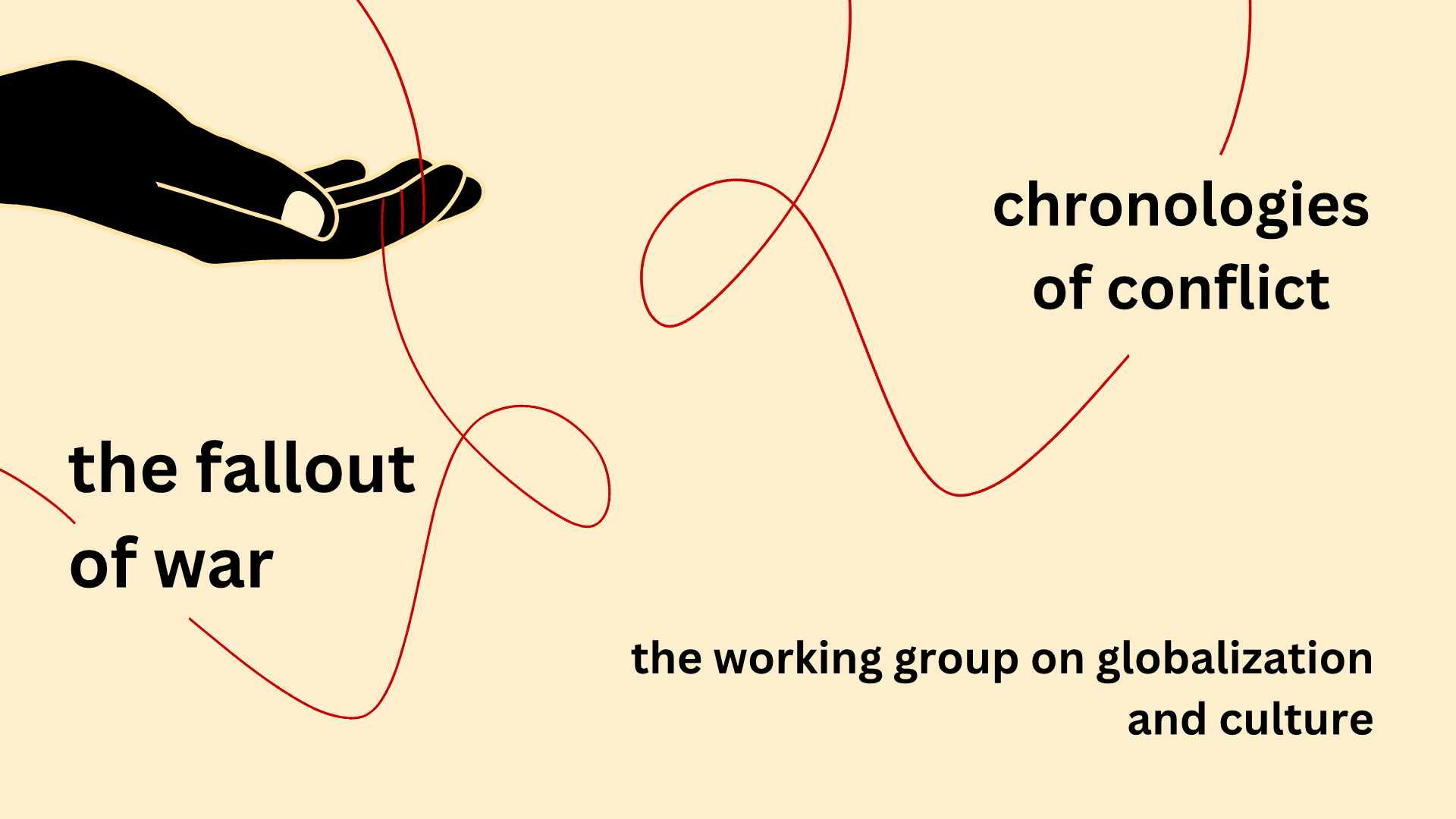
- This event has passed.
The Fallout of War: Chronologies of Conflict

Yale Working Group on Globalization and Culture
First of two parts. Part Two
War: what is it, and what is it good for? War might seem like a foregone conclusion or a state of exception; in either case it is an archetype of crisis. In two linked sessions, the Yale Working Group on Globalization and Culture presents their collective research on a keyword of contemporary cultural studies – war – and investigates its many valences as lived reality and as metaphor. Trade wars can become militarized, and hot wars can look cold, depending on your vantage point. The race war, Twitter tells us, is impending; but in an age of US forever war(s), understanding war as punctuating the flow of history seems to be entirely insufficient. War is, some argue, a way of life, a structuring condition that shapes our examinations of the history of the present. The war on drugs, the war on poverty, the war on COVID, the war on Christmas – war is also a ubiquitous metaphor, a self-righteous idiom that announces moral panic and articulates racial logic in otherwise terms. But metaphors of war have also influenced various radical traditions and social movements, including anti-war activism and Gramsci’s deployment of metaphors of war in his theorizing of hegemony. Taking account of war as constitutive of the present, the working group explores war’s meanings as event, analytic, and metaphor.
Panel I Presentations:
Damanpreet Pelia reflects on teaching “civil wars” both as metaphor and historical event, the usefulness of reading old texts, and the problem of making sense of the present in the classroom.
Michael Denning reviews Marxist theories of war, developing an account of capitalist conscription and imperial wars.
Lucero Estrella thinks comparatively about Japanese-Mexicans and Japanese-Americans on either side of the U.S.-Mexico border during World War II.
Jessica Marion Modi thinks through the metaphorics of war in black poetry following World War II, theorizing the “off-rhyme situation,” as poet Gwendolyn Brooks called it, of a postwar atomic age and slowly decolonizing world in which black Americans had fought for democracy abroad without the provision of it at home.
Salonee Bhaman writes on the “Culture Wars” from the rise if the New Right to the “Witch Hunts” of the present day.
Marú Pabón chairs this panel.
The Yale Working Group on Globalization and Culture is an interdisciplinary cultural studies laboratory that has been practicing collective research at Yale University for two decades. Over the years, we have presented work collaboratively at numerous cultural studies conferences as well as at the Marxist Education Project, the Left Forum, Occupy Boston, and the World Social Forum. Past projects have been published as “Going into Debt,” online in Social Text’s Periscope, and as “Spaces and Times of Occupation” in Transforming Anthropology; a collective interview regarding “Matters of Life and Death” appeared in Revue Française d’Études Américaines. The current members—Aanchal Saraf, Damanpreet Pelia, Javier Porras Madero, Jessica Marion Modi, Lucero Estrella, Madeleine Han, Maru Pabón, Michael Denning, Monique Flores Ulysses, and Salonee Bhaman—work in American studies, history, Latinx studies, literary criticism, African-American studies, Asian American studies, comparative literature, and womens, gender and sexuality studies.
